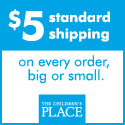This is a subject near and dear to my heart, and I’ve talked about it before, but I think it bears repeating.
I have a tremendous amount of respect for financial advisors like Dave Ramsey who have practical advice for people in dire financial straits. Truly, my admiration for them is vast and this is not about me saying “he’s wrong” or anything like that.
Nevertheless, I submit to you that any “cash only” plan for living is not only limiting, it potentially decreases how much money you have.
Let’s be clear on this, now: If you are too irresponsible to use credit wisely, then by all means go cash-only. I understand that that’s the only way some people can get back on track. I even agree that it’s an ideal solution in those cases. All I’m saying is that I personally think more people should view such a regimen as a means to an end rather than an end unto itself.
If your financial wellness is badly derailed, going cash-only is a great way to get back on track. Absolutely.
If your financial wellness isn’t limping along or otherwise in jeopardy, there is no reason not to judiciously utilize a credit card, or a mortgage, or a “buy now, pay later” credit line when making a large purchase.
Granted, this requires some discipline and planning, on your part. If it seems too hard or too scary, don’t do it. But if you want to maximize every dollar, start thinking about some of these things.
Credit cards. The post I referenced above gives numerous examples of why credit cards can be useful. It simplifies bookkeeping, many cards give bonuses of cash or airline miles or other goodies, and it’s good for your credit rating to have a long-standing credit card which you regularly use and pay off each month. That’s all aside from the fact that if you go out to make a large purchase with a credit card, you don’t lose any money if your purse is stolen. Plus, your credit card probably gives you extra warranty coverage as a bonus.
Mortgages. Again, this isn’t a rallying cry to borrow to the hilt. But the conventional wisdom about paying off your house as quickly as possible? Consider sitting down with a tax professional before you pursue such a plan. Depending on your income and the size of your mortgage, the tax benefits may outweigh the drawbacks of the interest you pay. (Please note: I’m not a financial planner or a tax specialist. Which is why I suggest you talk to someone who is.)
Interest-free credit lines. If you buy that new washer/dryer or sofa from a place that will let you finance it for a year with no interest, paying in cash is great. Taking their offer and buying a CD with the money with which you’ll later pay the debt off is better, though. That’s simple math, provided you don’t deviate from the plan.
Credit is not inherently evil. (I feel like I’ve been sent here from the NRA. “Guns don’t kill people! People kill people!”) If you can live credit-free, chances are excellent you can also live well—and with a few added benefits, not to mention a little bit of extra money—with the judicious use of credit.












We take advantage of the interest-free credit lines for big purchases from time to time (like for this fancy new ‘puter I’m typing on). What I do is figure out what even monthly payments would be and set up an automatic transfer into an earmarked ING account. It earns relatively high interest. Every time the interest posts, I feel like I’m sticking it to the man just a little bit.
For monthly household purchases, we use a credit card that gives us air miles and we pay it off each month. Historically we’ve flown a lot, so this card makes sense for us right now. I work for a credit card issuer, so I’m a bit biased, but there are articles available that advise consumers as to which card is right for them and will give them the best benefits for their particular situation. I’m sure Google can help find them!
I try to pay cash for small things and I use credit cards to pay for bigger things (usually knowing I have the cash in savings). Generally I pay them partially off to try to get my credit rating up–which is what a financial planner told me to do, for me keeping a balance that i know I can pay off at anytime is good, since it builds my credit. ( I went through a divorce almost 3 years ago and it is still hurting me really bad and will unfortunatly continue to for years…..)
Very interesting insight! We are cash people and have been for 2 years. Apparently financial gurus like Dave Ramsey and others would say that you spend 33% more by using a credit card than you normally would. Which would make up for the loss of points you could earn or even if your wallet was stolen. Now I don’t know if that fact is exactly true, but I can tell you that based on our experience…we do stick to our budget now by using only cash. For example, right now we are at the end of the month and there is no money left in groceries or eating out. In the past, I would’ve been like, “no big deal. we’ll just go over that a little this month because I don’t feel like cooking tonight.” BUt not now…there is no cash, so we figure out what to eat in our house. Sometimes I even like to use it as a game to see if I can actually not spend it all and have extra at the end of the month. So, I would say if you are one of those people that definitely is not tempted to even go over just a little bit, then credit cards are probably fine. But for us, and we are disciplined, tight people, I work better with cash and do not overspend this way.
Jill: See, this is what I’m saying. You’ve determined that cash-only is really what works for you, and the temptations are too great, otherwise. So you stick to cash and it works for you. Wonderful! All I’m saying is that some folks will be okay using credit, but one-size-fits-all programs would have them believe it’s the path to ruin. 😉 It’s all about knowing yourself, I guess.
I gotta say, I’m a crazy Dave Ramsey fan, but I can see where you are coming from. BUT..just for the record, a VISA check (debit) card offers the same protection that a credit card does on purchases, if you ever miss a payment (even by a day) on your interest-free purchase, you’ll pay retroactive interest on the entire purchase (even the part you’ve already paid off). As for the mortgage, when you pay off early, you can generally make a lot more by investing your payment than you get by writing off the interest that you would have paid. Just sayin’.
And, Dave’s point is, there’s usually not a need to have a credit card to establish a great credit rating if you aren’t borrowing 😉
I love my credit cards. I would spend the money anyway – since we don’t spend money we don’t have unless it is for a house, or perhaps a car – and it’s easier and I get GREAT gift cards as rewards with my Discover Card. I actually get 25% more back by getting the gift cards and I use them to shop at places I would go to anyway or order gifts that are FREE. My very favorite price. I can’t bring myself to go to Borders unless I have a gift card from Discover – it feels like a waste of money!
I’m in agreement. I love my credit card(s). I do have a few too many and I really need to close at least 2 – 3 of them. I never use them. Mostly because they are cards I got when I was between 16 and 20, the limit is low, the interest rate is high and no rewards. Now that I qualify for better cards, I have better cards! 🙂
When my mom co-signed on my first credit card with me (when I was 16, maybe 15?) she gave me 2 rules. 1) Do not carry a balance. 2) Do not ever get a card with an annual fee. And I’m proud to say, ten years later, the only balance I have ever carried have been on 0% things that I have paid off in time AND I’ve never had a card with an annual fee. However, here in the past few month the credit card as been abused slightly by both me and my husband. My husband’s mom did not give him the same kind of strict instructions with credit cards, in fact, he didn’t even get a credit card until he was in his mid-20s. While he agrees with the fact that it must be paid off every month (with the exception of 0% things) he does not realize how quickly those $5 to $10 purchases add up. Particularly when one person is no longer bring in an income.
That’s another subject you should discuss (if you haven’t at some point, I’m a fairly new reader). The importance of trying to live off one’s person’s income so that if one spouse no longer has income you aren’t floundering trying to make ends meet.
I totally agree – I use my credit cards carefully to earn extra rewards.
One note – I recently bought a new bed, and we were offered the interest-free credit line for 6 months. I said to my boyfriend that we could do that, even though we have the cash now. The salesman overheard me, and offered to throw in a free bed frame (about $150 value) if we paid right away instead of taking the credit. Yes, please!
Thanks again for the balanced perspective. I always enjoy reading your thoughts.
…and of course you can also do both: put a purchase on your credit card and write a check for that amount to send off to Visa (or whomever). If you do this for every purchase, yes, you do write a lot of checks — but you may think twice about spending too much or too often if you need to write a check every time.
A simpler way is to write down each transaction total in your check register so that you already earmark money toward that payment, but this works best if you rely on your paper balance rather than the one you see online.
My problem with credit cards is that you are more likely to fall into the trap of spending more than you would have otherwise. Plus, if you take advantage of those charge-now-pay-later deals you have to be VERY CAREFUL to always make the required payment on time or you will have a bunch of accrued interest added to your balance. I use a credit card (instead of a debit card) when I shop online but I also make a payment through the card’s website every week so that the money is almost immediately gone from my checking account. That way I can keep up with the spending. I could be getting a percentage back on my grocery shopping if I used my credit card but instead I’ve been using cash only at the grocery store for several years now and I can definitely say that I spend less than I used to. And that’s even with a larger family than I had when I was using the credit card. So I am living proof that credit cards make it easier to spend more than you would have/should have. If I could do it all over again I would NEVER have gotten a credit card in the first place. I’ve probably paid a total of $20 in interest in my entire lifetime but that’s not the point. The point is that the credit industry is inherently out to get as much money as possible from us. If you use cash then they LOSE!
On the topic of paying off your mortgage — your tax benefits can almost NEVER outweigh the interest you are paying on that note. Why would you send the bank several thousand dollars a year just to save sending the IRS several hundred dollars? Yes, you should definitely consult a tax adviser about your personal situation, but be sure it’s someone who understands the real facts and isn’t just spitting out the usual drivel about tax advantages.